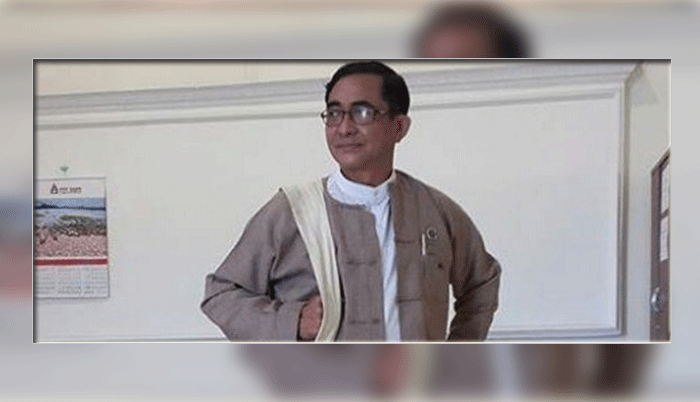![]() Home > Myanmar
Home > Myanmar
The Myanmar National Human Rights Commission Has Failed As A Victims’ Advocate

MNHRC holds a discussion on human rights in Maubin District in Irrawaddy Division in September 2016. (Photo: MNHRC)
![]() September 21st, 2016 | 07:59 AM |
September 21st, 2016 | 07:59 AM | ![]() 1095 views
1095 views
RANGOON
This week, the brutality that a Rangoon family inflicted on two teenagers unfolded in the media: aged 16 and 17, the girls, visibly scarred by long-term abuse, were forced to work in domestic servitude with little or no pay for five years.
The crimes against Ma San Kay Khaing and Ma Tha Zin occurred in the heart of downtown Rangoon, the country’s commercial capital, and were perpetrated by a prominent family of tailors. But perhaps more shocking was the pressure that the Myanmar National Human Rights Commission (MNHRC) reportedly placed on the families of the victims to negotiate a financial settlement rather than push for legal action.
The abusers paid a total compensation of 5 million kyats to the girls: 4 million to one, 1 million to another. They were required to offer no statement of remorse, simply saying that the children had shown them “disrespect” during their time as domestic workers. The perpetrators were then released by the police with no legal recourse or scheduled follow-up; essentially, for US$4,000, they bought two girls’ childhoods.
Given the severity of the case, and the evidence presented, lawyers said the perpetrators could have faced charges stipulating lengthy prison sentences.
The MNHRC failed to do its basic job, which is to protect and fight for the fundamental rights of Burma’s citizens. Instead of providing the support to the victims and their families that would have led to the abusers’ punishment under the law, the MNHRC adopted the role of “negotiators” in the case. The girls who survived were in need of an advocate, not a broker.
By not recommending that police take action in line with the law—regarding physical abuse, forced labor, child exploitation, or confining the girls within the household—the MNHRC sends a message to both victims and perpetrators that these crimes will continue to be met with impunity. This is particularly significant in Burma, where, according to data collected in 2015 by the International Labor Organization (ILO), out of an estimated 12 million children in the country, over 1.1 million are engaged in child labor. The ILO defines this as “hazardous” work that “deprives children of their childhood,” not unlike what was experienced by these two girls in Rangoon.
If the MNHRC is to be a force for change, it must stand firmly on the victims’ side and demand justice through appropriate legal mechanisms. An intervention leading to a small, informal cash settlement is proof of further degradation to Burma’s already weak rule of law.
It is hoped that the Office of the President, the State Counselor’s Office, or the parliamentary committee for rights for women and children will use their influence and respond with considerable pressure to review this case further. Restoring the rule of law has been one of Daw Aung San Suu Kyi’s mantras throughout her electoral campaign. Let this case be processed in a way that not only strives to return dignity to children who endured years of abuse, but unnerves the many more violators present throughout Burma who, we hope, will one day be brought to justice.
Source:
courtesy of THE IRRAWADDY
by THE IRRAWADDY
If you have any stories or news that you would like to share with the global online community, please feel free to share it with us by contacting us directly at [email protected]